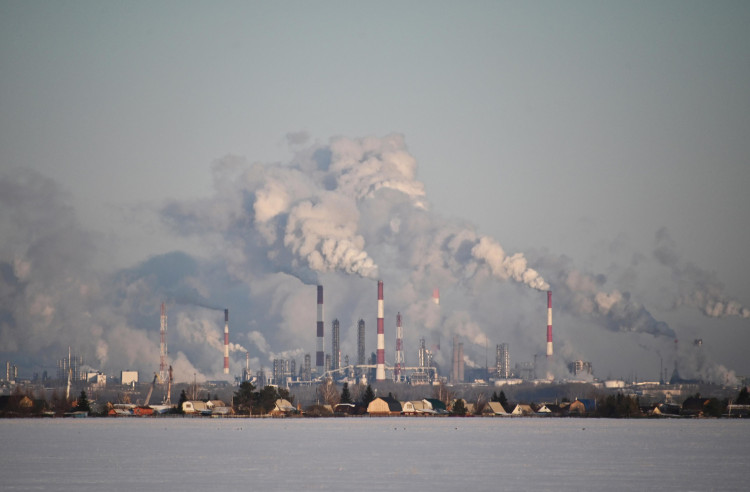Ukrainian drones have set ablaze oil depots in Russia's Rostov and Kirov regions, intensifying the conflict's impact on Russia's energy infrastructure. On Wednesday morning, an oil depot in Rostov's Kamensky district was engulfed in flames, following what Russian authorities have described as a targeted strike. This incident underscores the ongoing vulnerability of critical infrastructure amid the persistent conflict between Ukraine and Russia.
According to Russian officials, two drones struck the Atlas oil depot in Kamensky, resulting in fires that consumed three large tanks. The Baza Telegram channel, which has ties to Russian security services, reported that the drones' impact led to substantial damage. Videos circulating on social media show significant flames and smoke rising from the site, which specializes in storing petroleum products crucial for the Russian military.
Rostov Governor Vasily Golubev confirmed that emergency response teams were working to control the fire and prevent it from spreading to residential areas. "There are no casualties," Golubev assured in a Telegram post, adding that four drones had been intercepted and destroyed by Russian air defenses overnight. Despite this, the fire's impact remains significant, with ongoing concerns about its potential to disrupt regional stability.
This attack is part of a broader pattern of intensified drone strikes by Ukraine targeting Russian energy and military infrastructure. The latest incidents come just ten days after a similar strike in Rostov's Proletarsk district, where fires continue to burn at another oil depot. Satellite imagery has shown the extensive damage at the Kavkaz facility, which supplies oil to Russian forces. Reports indicate that the fire from this previous attack has continued to smolder, with smoke visible for miles.
In addition to the Rostov incident, Ukrainian drones also struck an oil products depot in Kotelnich, Kirov region, on Wednesday. Governor Alexander Sokolov reported that while the attack resulted in fires at the depot, there were no casualties and no significant damage to the fuel storage itself. Two drones were shot down, while three others ignited small fires that were quickly extinguished.
The attacks have prompted a response from various Russian officials, who are grappling with the increasing frequency and scale of these drone incursions. In Voronezh, another region bordering Ukraine, debris from a Ukrainian drone caused a fire near explosive materials, leading to the evacuation of nearby settlements. Governor Alexander Gusev reported that no detonation occurred, and the fire was promptly controlled. However, the incident highlights the risks associated with drone strikes and their potential for causing widespread disruption.
The impact of these drone attacks has extended beyond the immediate damage, affecting infrastructure and logistics across Russia. The threat of further strikes has led to temporary flight suspensions at Kazan International Airport in the Tatarstan region, highlighting the broader implications for Russian transportation networks. Such disruptions underscore the strategic challenges facing Russia as it contends with Ukraine's increasingly sophisticated drone operations.
While Ukraine has not formally claimed responsibility for the latest attacks, the pattern of targeting energy and military infrastructure aligns with Kyiv's stated objectives. The Ukrainian Defense Ministry has refrained from commenting directly on these specific incidents but has previously indicated that such strikes are aimed at disrupting Russia's war capabilities and logistical support.




